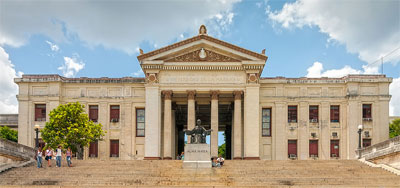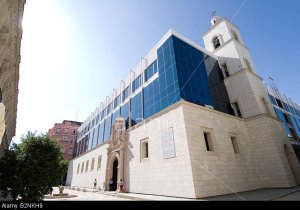Renmin University, Beijing
DATE CHANGE: October 11-13, 2019
Organized by The Network for Critical Studies of Global Capitalism, in cooperation with the Institute of Philosophy at the Chinese Academy of Social Sciences, Beijing
Theme: “The Future of Globalization”
Globalization is facing a pivotal moment in history. Since the economic crisis of 2008 it has faced serious turbulence, challenged for its vast economic and social problems, as well as its environmental destruction. New political movements have appeared to displace or upset long-ruling traditional parties in the West. And women, constituting a large sector of the new labor force for global manufacturing, continue to struggle for an equal place at home and in society. Traditional Western globalists have offered no strategy except to continue their failing model of development. But new roads have emerged that propose radically different possibilities. “The Future of Globalization” will analyze and debate various models of globalization and its alternatives.
Among future alternatives to consider are the following:
(1) The danger of populism with mass appeal to reactionary nationalism, militarism, misogyny and racism. Such a future is evident in the rise of right-wing movements in Europe, as well as the ascent of Donald Trump. An important character of this trend is accumulation by militarization, disposition, and expulsions.
(2) A re-balancing of political and economic globalization to a multi-polar transnational order. This would encompass a greater role for China in world affairs through its One Belt One Road Initiative for global development. It would also encompass deeper integration into the transnational economy of the global South, and consequently the rise of their influence in world affairs.
(3) A new round of transnational accumulation based in green sustainable technologies, the development and application of AI technologies, robotization (automation), and the deepening of bio-technological innovations. A significant sector of the transnational capitalist class is making large commitments in these areas, including both private and state sectors in the US, Europe and China. The global capitalist market is promoted as the developmental model for these technologies.
(4) A transformation of capitalism based in socialist, feminist and environmental ideologies and social movements. An international order based on state sovereignty, equal exchange, common efforts to confront the planetary crisis of environmental destruction, as well as gender and economic inequality.
Contacts:
Jerry Harris, National Secretary of the Global Studies Association/North America, Chicago, USA, Email: gharris234@comcast.net
Marek Hrubec, Director, Centre for Global Studies, Prague, Czech Republic, Email: marek.hrubec@gmail.com
Previous conferences were held in Europe (Prague), Australia (Brisbane), and Latin America (Havana).


 The U.S. political scene has been undergoing a facelift in an effort to restore the decreasing legitimacy of the transnationally-oriented capitalist class. This transformation has been characterized by a right wing that has sought to portray itself as economically nationalistic in an attempt to expand support among the working class (primarily, among working class whites) whose economic stability had dwindled during the neoliberal era.
The U.S. political scene has been undergoing a facelift in an effort to restore the decreasing legitimacy of the transnationally-oriented capitalist class. This transformation has been characterized by a right wing that has sought to portray itself as economically nationalistic in an attempt to expand support among the working class (primarily, among working class whites) whose economic stability had dwindled during the neoliberal era.
 ctions made by the
ctions made by the